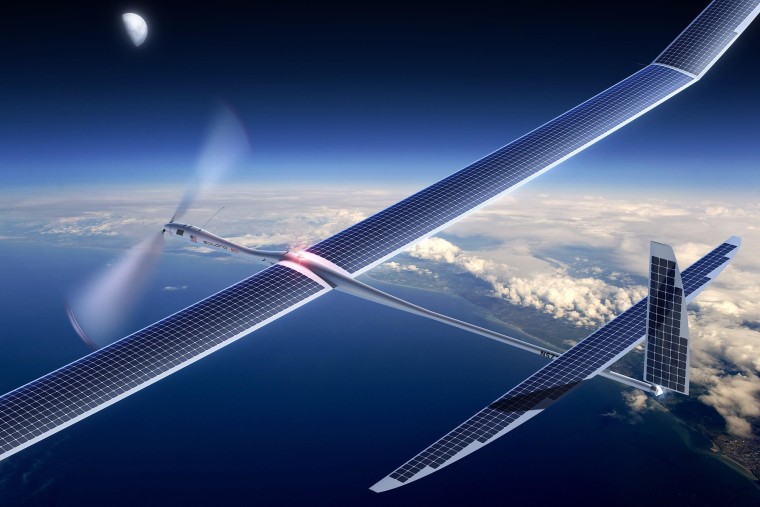Google is reportedly sending a fleet of satellites into space and could spend up to $3 billion doing it.
This is not the first time the tech giant has tried to spread Internet access through the sky. Last year, Google unveiled Project Loon, its plan to provide remote areas with a broadband connection via balloon. Then in April, it bought drone-maker Titan Aerospace for the same purpose.
Now it’s looking to launch 180 satellites into low orbit, according to “people familiar with the project” who talked to the Wall Street Journal.
Space, The Profitable Frontier
Sending a satellite into orbit is not cheap. Google is reportedly expected to spend between $1 billion and $3 billion launching rockets into space. So why not just rely on the balloons and drones it already has?
“Yes, you have to spend $3 billion to get them up there, but once they are up there, the operating costs are relatively minimal compared to balloons, because you are always retrieving balloons and launching replacements,” Tim Farrar, founder of TMF Associates, a satellite consulting firm, told NBC News.

With a network of 180 satellites, Google would have “complete global coverage,” Farrar said, and would likely supplement their coverage in certain areas with its balloons and drones.
Google would not comment directly on the Wall Street Journal report.
"Internet connectivity significantly improves people's lives," Google said through a spokesperson. "Yet two thirds of the world have no access at all. It's why we're so focused on new technologies — from Project Loon to Titan Aerospace—that have the potential to bring hundreds of millions more people online in the coming years.”
Size Matters
The more satellites that can be fit on a single rocket, the cheaper it is to send those satellites into space.
For Google’s plan to fit its budget, the company will have to figure out how to pack more capacity into a smaller package. O3b Networks, the satellite start-up backed by Google, is currently working with 1,500-pound satellites that can provide broadband Internet connectivity. O3b’s first four satellites were launched last June from French Guiana atop a Russian-built Soyuz rocket.
Google reportedly wants satellites that weigh just 250 pounds — and is said to be hiring engineers from Space Systems/Loral, a satellite-building company, to work on the project. If Google could use satellites that small for telecommunications, it would be a “radical advance” in the field, Farrar said.

That means the pressure is on Greg Wyler, head of the Google project and founder of O3b Networks, to find a way to fit more capacity on smaller satellites.
Google is also reportedly hoping to use new flat-panel antennas that can track satellites without moving parts. Those antennas cost hundreds of dollars, compared to the tens of thousands of dollars that previous systems cost.
A Truly World Wide Web
While a network of 180 satellites would technically cover the entire Earth, the focus would be on providing Internet access to developing countries.
Facebook has similar goals. It bought its own drone company, Ascenta, in March to help with its Internet.org project, whose stated mission is to make "Internet access available to the next 5 billion people."

Google could fail, like the Microsoft-backed Teledesic did with a similar initiative that started in the 1990s. But even if Google doesn't make its $3 billion back right away, it could spur innovation and competition, much like how Google Fiber put pressure on AT&T to create its own ultra-fast fiber network.
"Even if Google does not make any money on this project, it could result in telecom companies around the world building broadband networks in developing countries," Farrar said. "That would benefit Google in the long-term, because it means more people using search and YouTube."